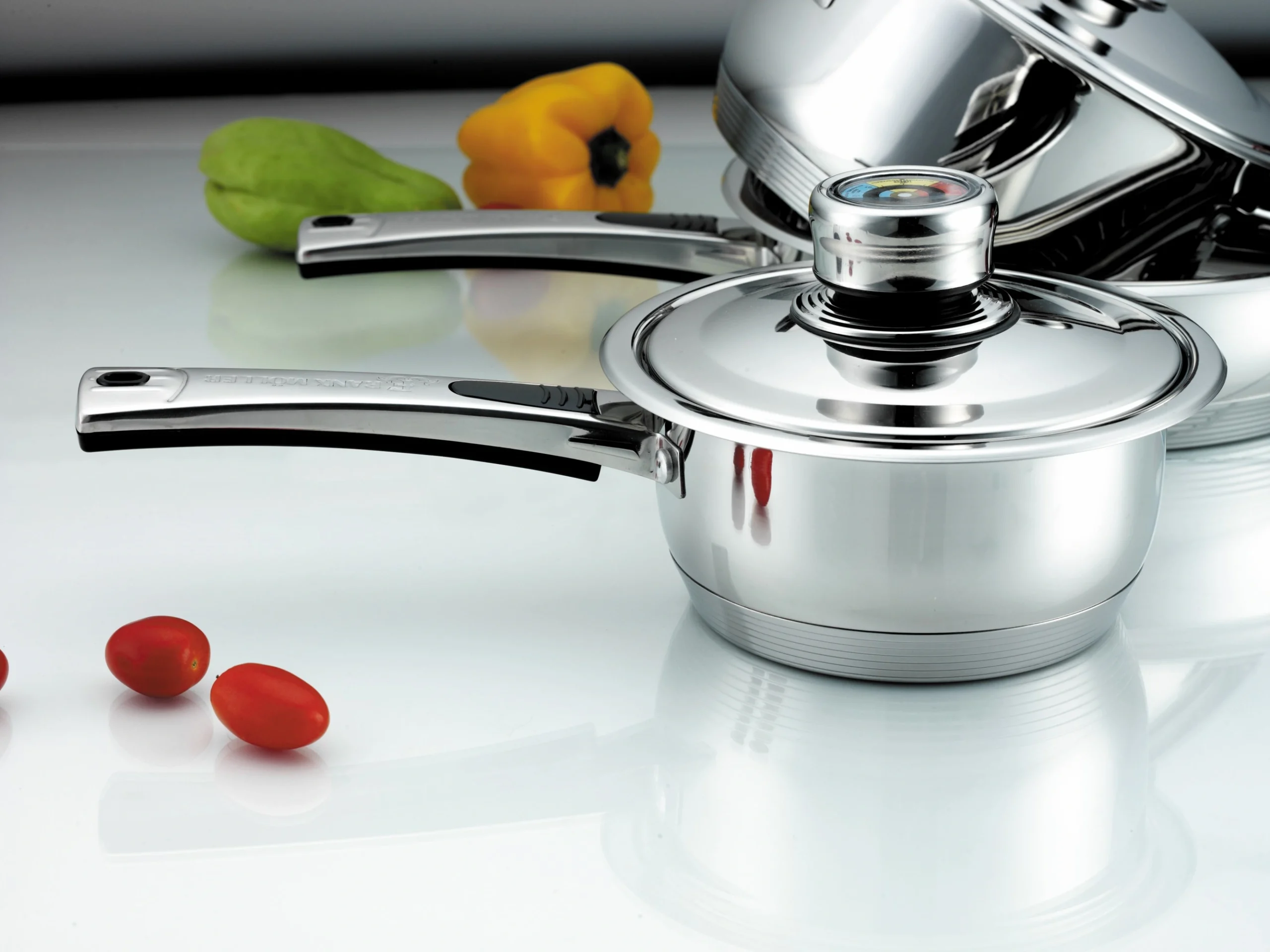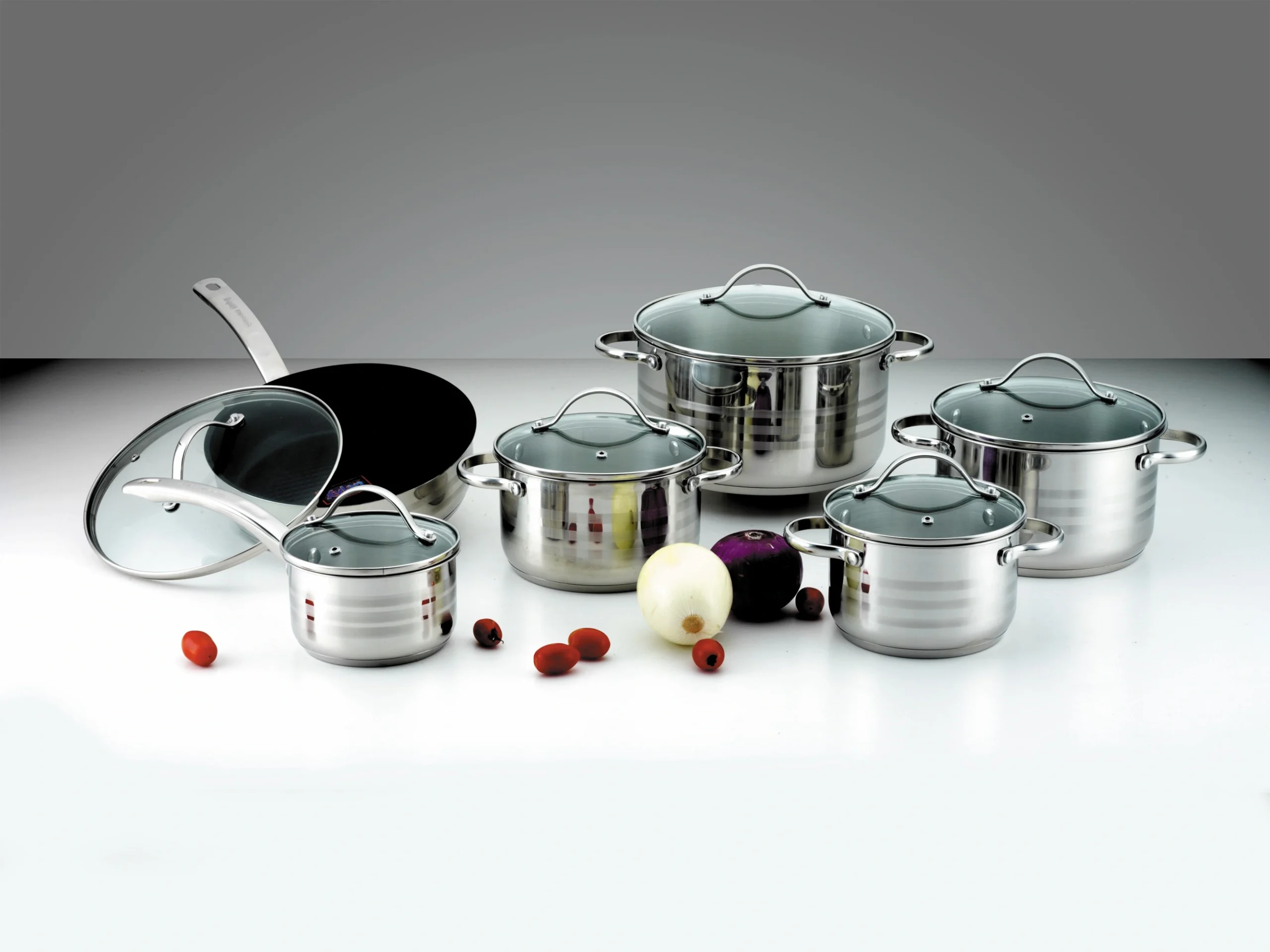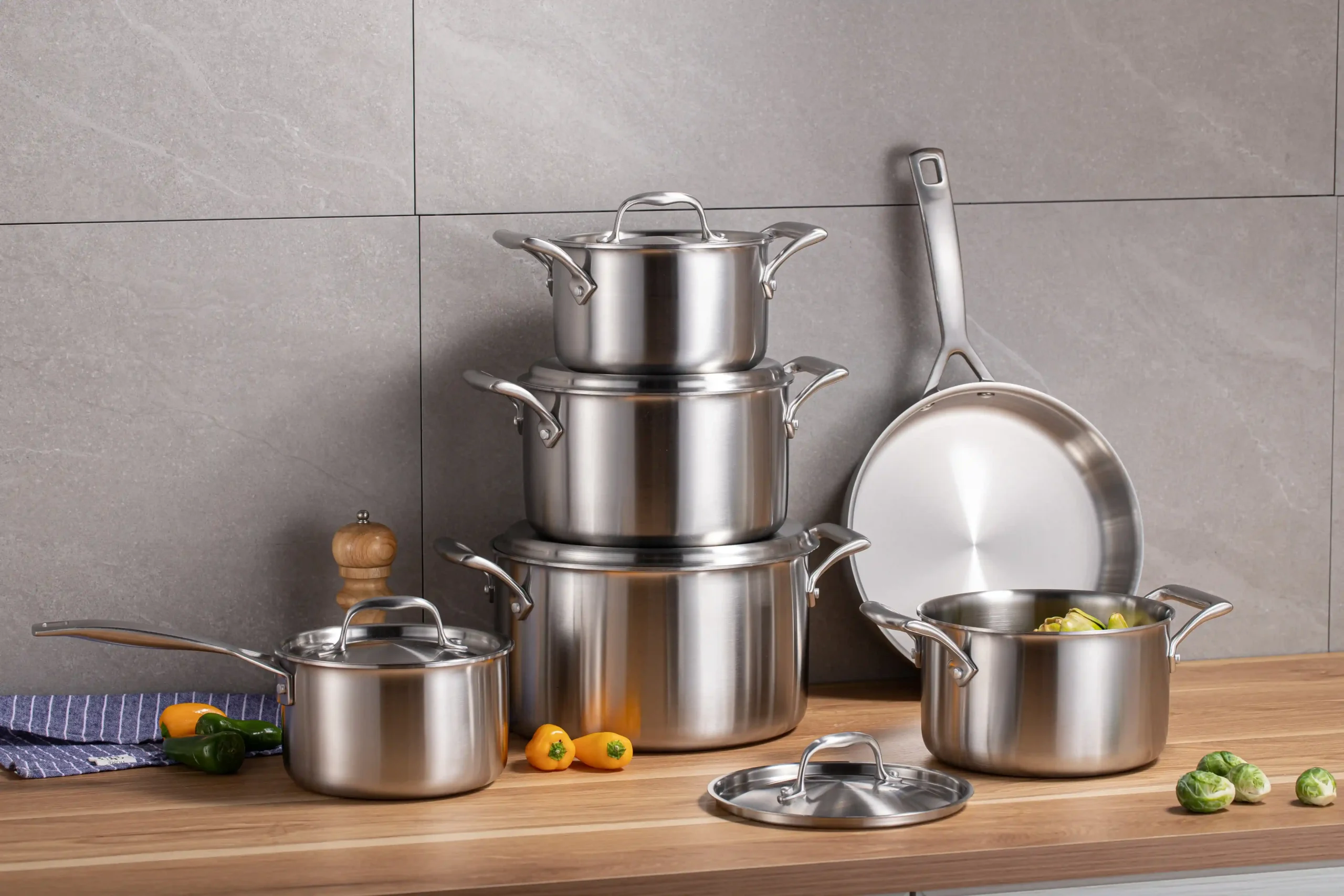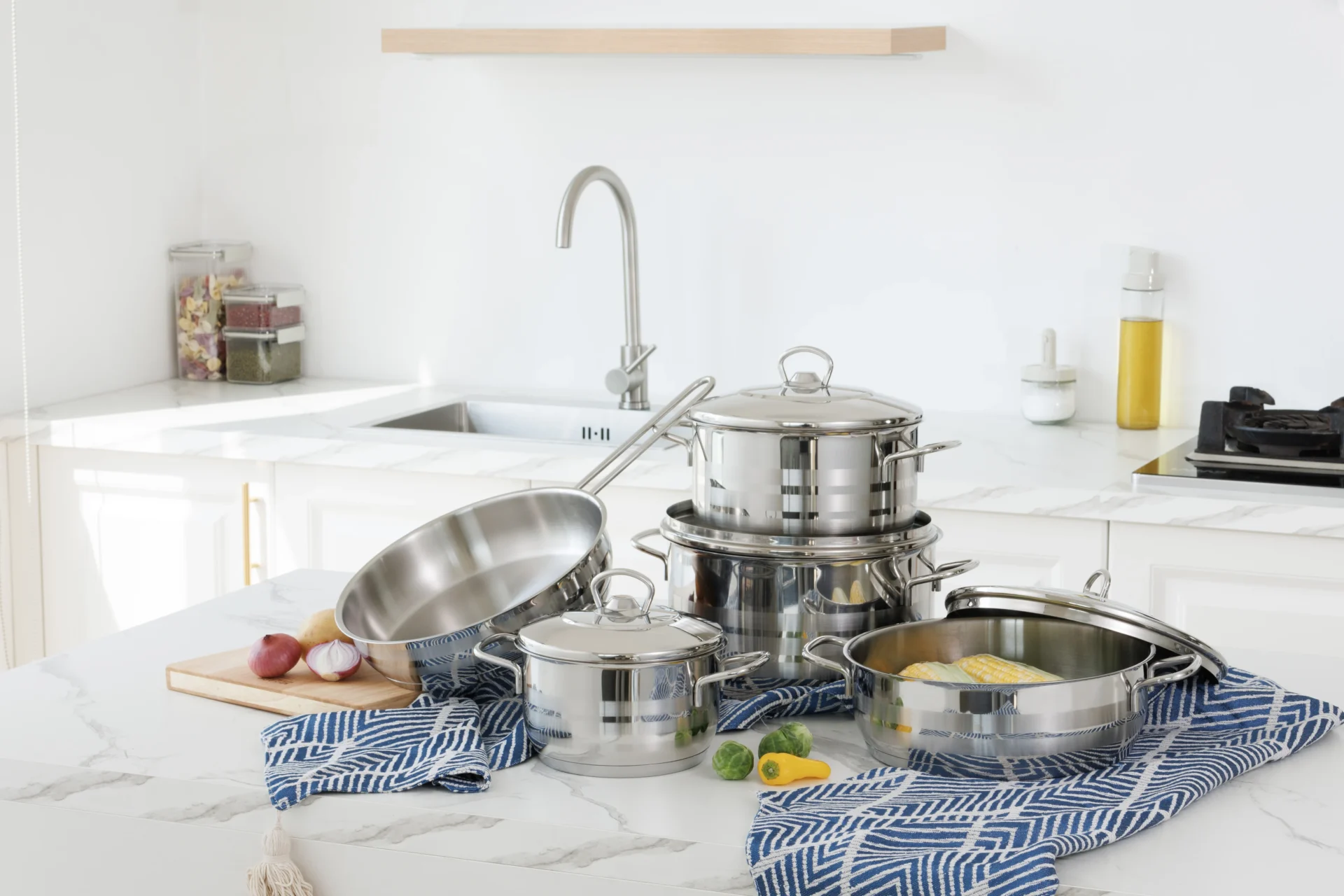
In the journey toward healthier eating, every detail matters—from the freshness of ingredients to the tools we use to prepare them. Among kitchen essentials, cookware plays a pivotal role in preserving nutrition and avoiding hidden health risks. When it comes to selecting the best kind of cookware for health-conscious individuals, 304 stainless steel emerges as an unrivaled option, blending safety, functionality, and durability to elevate every cooking experience.
1. Why 304 Stainless Steel Is the Best Kind of Cookware for Health
1.1 The Food-Safe Alloy Composition of 304 Stainless Steel
304 stainless steel is a food-grade alloy made of 18% chromium and 8% nickel, creating a non-toxic, corrosion-resistant surface. Unlike low-quality metals or PFOA/PFOS-containing non-stick coatings (which leach chemicals at high heat), it stays stable when cooking acidic (tomatoes, citrus) or salty (soy-marinated meats) foods—no harmful substances seep into meals.
1.2 Easy Sanitization for a Healthy Kitchen
Its smooth surface resists bacterial growth and traps no food residues. Unlike porous materials, it cleans thoroughly with mild soap and water, reducing cross-contamination risks between meals—critical for maintaining a healthy cooking environment.
2. Cookware with Lids: 304 Stainless Steel’s Partner in Nutrient Preservation
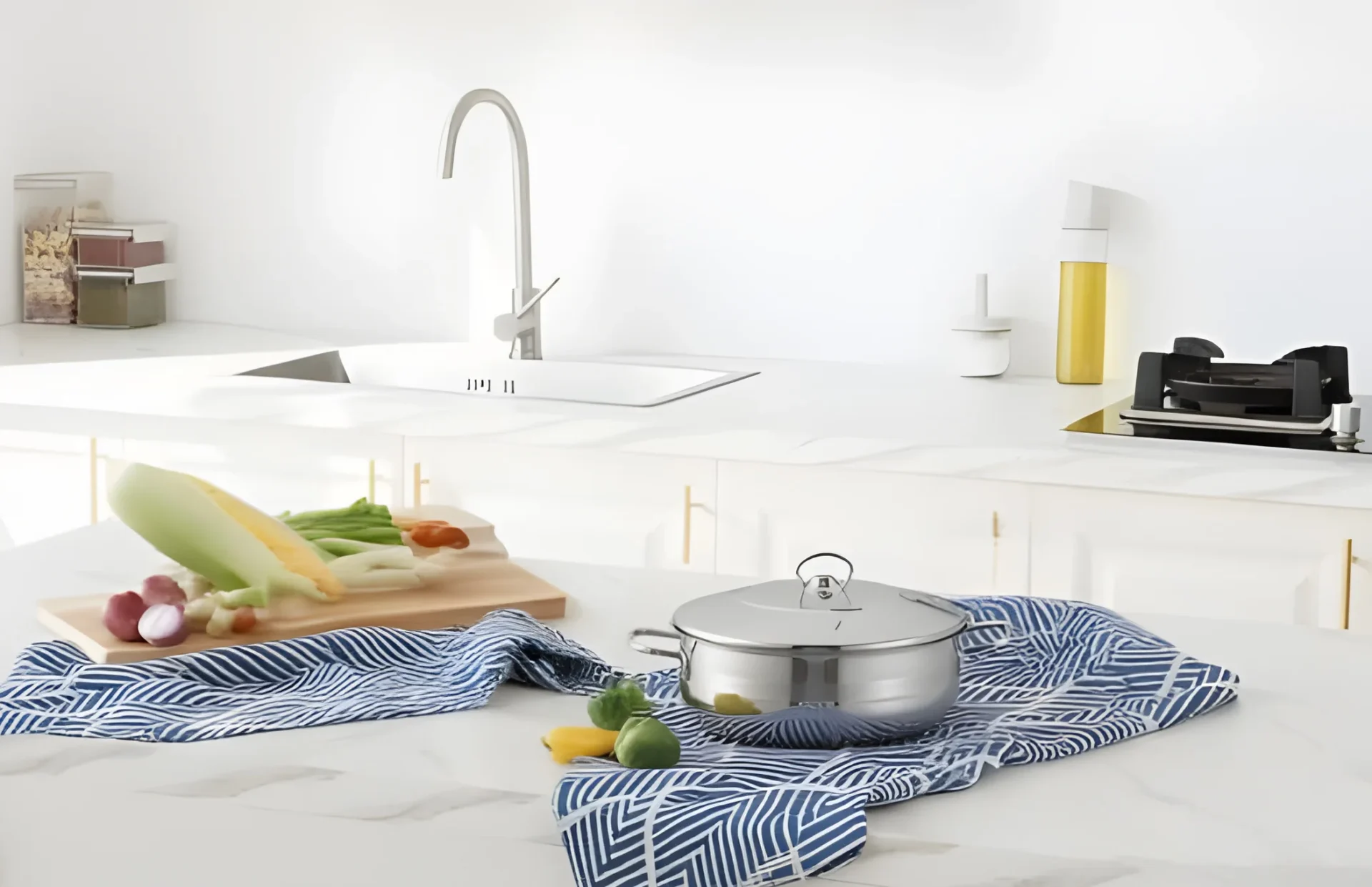
2.1 Moist Heat Cooking Locks in Water-Soluble Vitamins
Tight-sealing lids for 304 stainless steel cookware create a closed environment, trapping steam and heat for “moist heat cooking.” This preserves vitamin C and B vitamins (easily lost to overcooking/air). For example, lidded 304 stainless steel pots keep broccoli bright green and nutrient-dense, unlike uncovered cooking.
2.2 Enhanced Flavor with Less Added Seasoning
Sealed lids lock in natural juices of meats, herbs, and spices. A lidded 304 stainless steel casserole makes rich beef stew with minimal salt/oil—perfect for reducing sodium/fat intake while keeping meals delicious.
3. 304 Stainless Steel: The Foundation of a Good Frypan
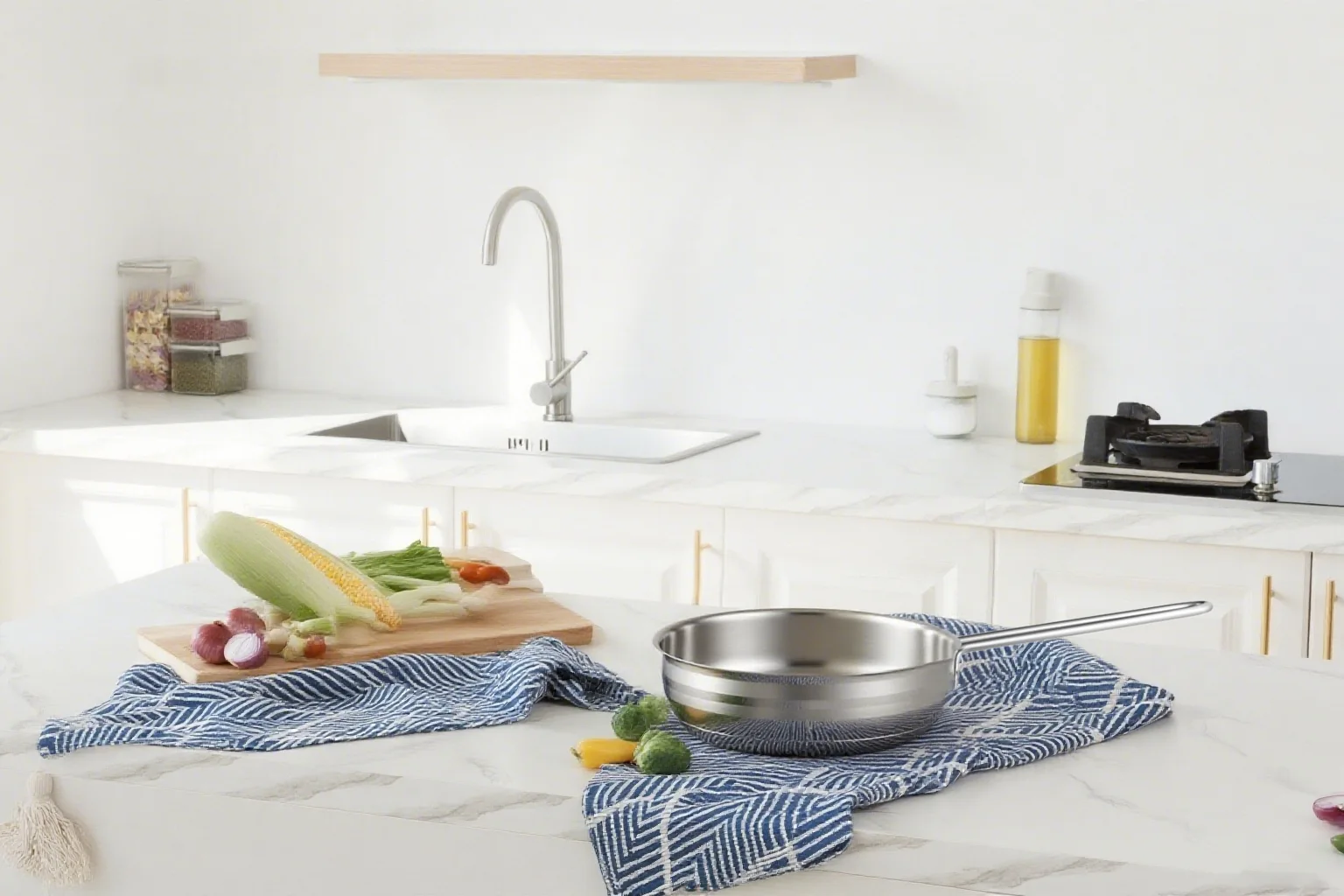
3.1 Even Heat Distribution Cuts Oil Use & Overcooking
A good frypan needs uniform heat—and 304 stainless steel (especially multi-layer base models) delivers. No hot spots mean lower heat settings, less oil (1 tsp for sunny-side-up eggs vs. more for uneven pans), and no nutrient-destroying overcooking.
3.2 Scratch-Resistant Durability for Long-Term Safety
Unlike non-stick pans (which release toxins when scratched), 304 stainless steel frypans withstand metal spatulas/tongs without chipping. They last years, avoiding frequent replacements—sustainable and cost-effective.
4. 304 Stainless Steel Cookware: A Long-Term Health Investment
4.1 Rugged Construction for Decades of Use
304 stainless steel resists warping, rust, and fading—even daily use. Unlike non-stick pans (replaced every 1-2 years), a high-quality set lasts a decade, making it a cost-effective health investment.
4.2 Stovetop Versatility for Every Kitchen
It works with gas, electric, and induction stovetops. No need for new cookware when upgrading appliances—reducing waste and keeping healthy cooking accessible.
5. Conclusion
In a health-focused world, 304 stainless steel cookware is a reliable tool for healthier cooking. As the best kind of cookware, it pairs with cookware with lids for nutrients, builds a good frypan for daily use, and lasts decades. Investing in it isn’t just buying cookware—it’s investing in your family’s health, one nutritious meal at a time.

